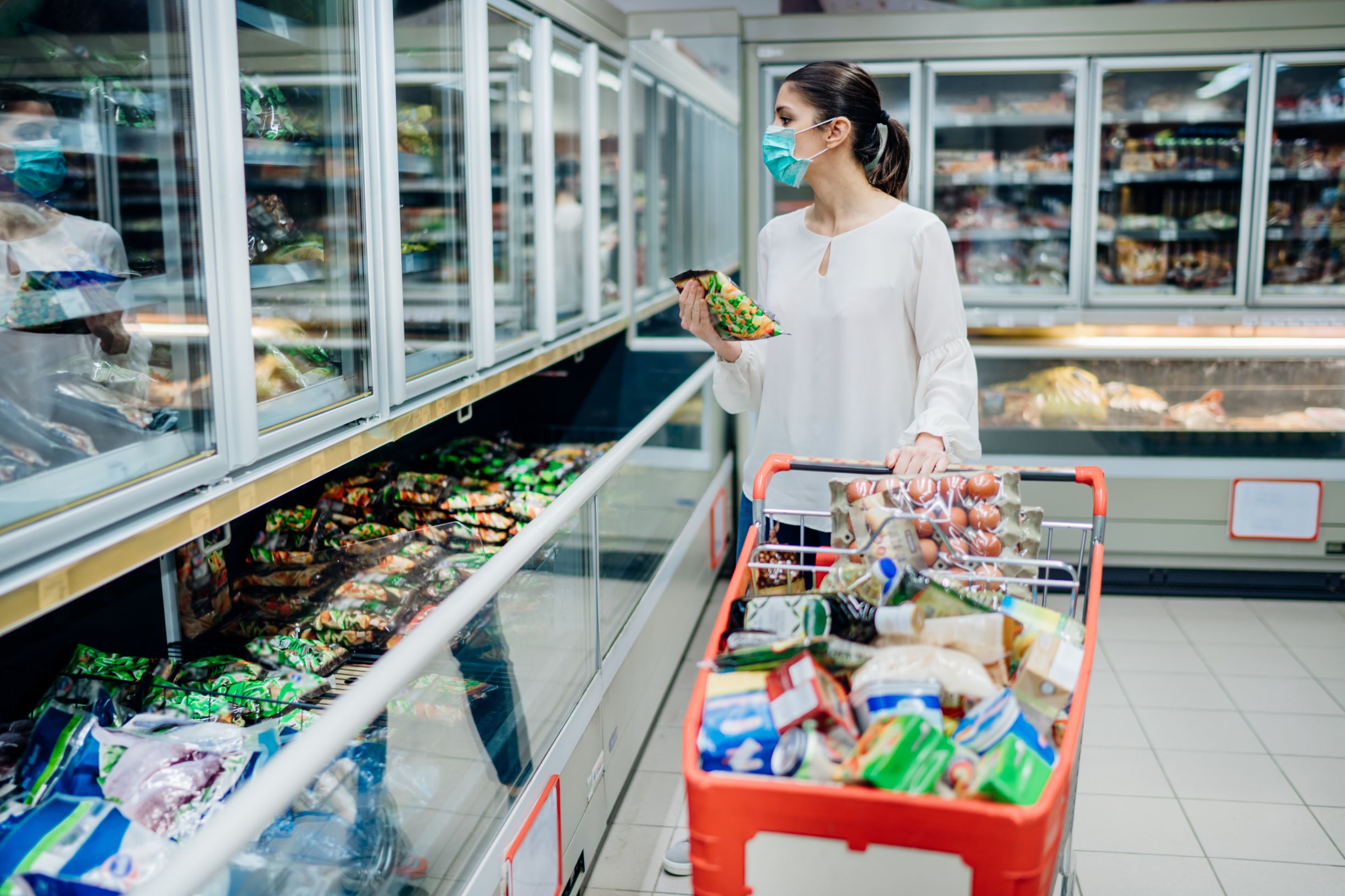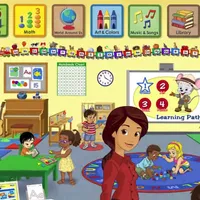How to shop for groceries during the COVID-19 pandemic
What was previously a mundane task has turned into a nerve-wracking ordeal. Here's a guide to grocery shopping during the pandemic.

Get the world’s most fascinating discoveries delivered straight to your inbox.
You are now subscribed
Your newsletter sign-up was successful
Want to add more newsletters?

Delivered Daily
Daily Newsletter
Sign up for the latest discoveries, groundbreaking research and fascinating breakthroughs that impact you and the wider world direct to your inbox.

Once a week
Life's Little Mysteries
Feed your curiosity with an exclusive mystery every week, solved with science and delivered direct to your inbox before it's seen anywhere else.

Once a week
How It Works
Sign up to our free science & technology newsletter for your weekly fix of fascinating articles, quick quizzes, amazing images, and more

Delivered daily
Space.com Newsletter
Breaking space news, the latest updates on rocket launches, skywatching events and more!

Once a month
Watch This Space
Sign up to our monthly entertainment newsletter to keep up with all our coverage of the latest sci-fi and space movies, tv shows, games and books.

Once a week
Night Sky This Week
Discover this week's must-see night sky events, moon phases, and stunning astrophotos. Sign up for our skywatching newsletter and explore the universe with us!
Join the club
Get full access to premium articles, exclusive features and a growing list of member rewards.
The coronavirus pandemic has upended many aspects of daily life, including trips to the grocery store. What was previously a mundane task has turned into a nerve-wracking ordeal that brings with it a host of questions: Is the virus lurking on food packaging or produce? Should you wear a mask to the store?
Before we get to the details of grocery shopping, it's important to note that there's currently no evidence of the new coronavirus disease, COVID-19, being transmitted through food, Live Science previously reported.
As far as we know, the disease appears to be spread mainly from person-to-person through virus particles that are transmitted when someone coughs or sneezes, according to the Centers for Disease Control and Prevention (CDC). Contaminated objects may transmit the virus if someone touches that object, picking up virus particles from the surface, and then touches their mouth, nose or eyes, according to the CDC. And some people may transmit the virus when they don't have symptoms, CDC says.
To prevent those modes of transmission, many stores are taking special safety precautions in light of COVID-19, such as limiting the number of people allowed in the store at one time, disinfecting carts and frequently touched surfaces, and placing tape or markings on the floor to help with social distancing.
Related: Latest COVID-19 news and US case counts
But there are still steps customers can take to reduce the spread of coronavirus and their risk of catching it at the store. Here's a guide to shopping during the pandemic:
—Coronavirus in the US: Map & cases
—What are coronavirus symptoms?
—How deadly is the new coronavirus?
—How long does coronavirus last on surfaces?
—Is there a cure for COVID-19?
—How does coronavirus compare with seasonal flu?
—How does the coronavirus spread?
—Can people spread the coronavirus after they recover?
Before you go to the store
- Consider whether you really need to go shopping: Americans are being told to stay home as much as possible, and that means limiting trips to the grocery store. So if you only need a few items, try to get by with what you have and plan a big shopping trip for later. The U.S. Food and Drug Administration advises people to buy enough food for a week or two at a time.
- Delivery may be an option instead: Getting groceries delivered helps reduce the number of people going into stores and touching things, and helps people follow social distancing rules, according to North Carolina State University's (NC State's) food safety sheet for COVID-19. It also helps reduce the spread of COVID-19 from people who are infected but don't show symptoms.
- If you can't get delivery, try shopping at off-peak hours and buying as many items as you can from one store (rather than visiting multiple stores), NC State says.
- Don't bring the whole family: It's best to shop alone, NC State says. This helps reduce the number of people going to stores. If possible, leave your children at home to limit your family's exposure, according to The University of Maryland Medical System.
- Don't go if you have symptoms: It's very important not to go shopping if you are showing symptoms of COVID-19 (such as fever, cough or shortness of breath), or if you think you have been exposed to the virus. In these cases, you should leave your home only to seek medical care, according to the CDC. If you need supplies, ask a friend or someone else to get them and leave them outside your home.
At the store
- Sanitize your hands often: Use hand sanitizer before entering the store and after leaving, NC State says. You should also consider using hand sanitizer before and after selecting produce items.
- If your store isn't providing disinfecting wipes, bring your own wipes to use on carts, basket handles and card readers, according to NC State.
- Wear a mask: The CDC now recommends that people wear cloth face coverings when they go out, including when they go to the grocery store. This recommendation is intended to prevent the spread of COVID-19 from people who are infected but don't realize it because they aren't showing symptoms.
- Practice social distancing: As with any public setting, you should maintain a distance of at least 6 feet (1.8 meters) from others.
- Touch only what you buy: Try not to touch things unnecessarily, NC State says. That means don't pick up multiple produce items to try to find the ripest one, for example.
- Gloves aren't necessary: Wearing gloves to the store isn't necessary because the gloves become contaminated the same way your hands do, according to The Washington Post. Washing or sanitizing your hands before and after entering the store is what's important. But if you choose to wear gloves, use disposable ones and discard them before you get into your car, if you're driving, or as soon as you get home if you're on foot or taking public transportation, according to The Wall Street Journal.
- Don't touch your face: Avoid touching your eyes, nose and mouth with unwashed hands, according to the CDC.
When you get home
- Wash your hands: You should wash your hands or use hand sanitizer after handling food packaging, according to NC State.
- Don't leave your food outside: Although some people on social media have suggested leaving your groceries in your garage for three days to kill the virus, this is bad advice. Not only is it not scientifically proven, it's also a food safety issue, according to NC State. Leaving food outside, in your garage or car, may mean that the food is not stored at the proper temperature to prevent bacterial growth; and it could also increase the risk of pests such as rodents.
- Rinse your produce: it's always a good idea — even when there's no pandemic — to rinse fresh fruit and vegetables with water to remove dirt, debris and pesticides, and reduce levels of foodborne germs, Benjamin Chapman, a professor and food safety specialist at North Carolina State University, told Live Science previously.
- Don't use soap: There's no need to use soap or chemical disinfectants on your produce, Chapman said. Dish soap is not approved for use on foods, and consuming it could lead to nausea and upset stomach, Live Science previously reported.
- Wiping food packaging isn't necessary: There's no evidence that touching food packaging is linked with transmission of the new coronavirus, according to the Food and Drug Administration. However, if you are concerned, you can wipe down product packaging and allow it to air dry, as an extra precaution, the FDA says.
- Wash reusable bags: If you use reusable grocery bags (although some states, such as Massachusetts, have banned reusable shopping bags during the pandemic), you should wash them after a trip to the store, either by putting them in the laundry (for cloth bags) or using soap or other disinfectants for plastic bags, according to NC State.
Originally published on Live Science.
Get the world’s most fascinating discoveries delivered straight to your inbox.
- The 12 deadliest viruses on Earth
- 11 ways processed food is different from real food
- 20 of the worst epidemics and pandemics in history
The one-month trial gives you access to all of the educational site's 9,000 activities in reading, science, math and art. Keep your child busy and learning while we are all stuck indoors.

Rachael is a Live Science contributor, and was a former channel editor and senior writer for Live Science between 2010 and 2022. She has a master's degree in journalism from New York University's Science, Health and Environmental Reporting Program. She also holds a B.S. in molecular biology and an M.S. in biology from the University of California, San Diego. Her work has appeared in Scienceline, The Washington Post and Scientific American.
 Live Science Plus
Live Science Plus











